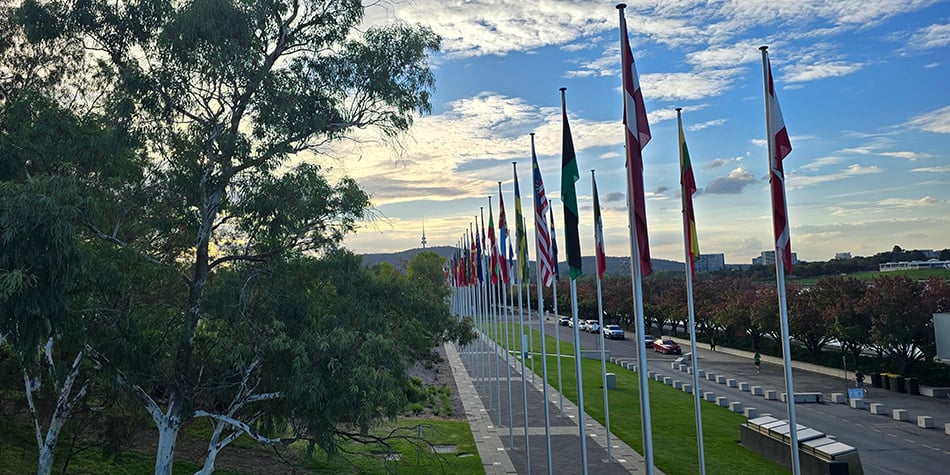About our research
We examine the theory and effective practice of strategy and leadership. By finetuning the requirements of a ‘good’ strategy, our national and defence strategy research aims to meet the demands of today’s changing geopolitical landscape and ensure the effective use of national power.
Our researchers
Our national and defence strategy research is led by an interdisciplinary team with decades of combined expertise across a range of military, political and human rights issues. Our leaders are:
Centre success
- 627 graduates since 2023
- 16 academic experts
- 523 visiting fellows since 2023
Current projects
Our national and defence strategy research team are working on the following projects.
Strategic empathy and narrative
Led by Dr Claire Yorke, this research explores how empathy and emotions influence international relations, security and leadership. It examines empathy's potential to improve strategy, decision-making and policy – while also addressing its limitations and challenges within security contexts.
Claire’s research aims to answer the following questions:
- What role does empathy play in creating better decision-making, strategy and policy?
- How can empathy lead to more effective solutions for contemporary security and political challenges?
- What kinds of dilemmas and tensions does empathy reveal within security contexts? And how might they be resolved?
Claire’s work is grounded in qualitative research methods – including interviews, archival research and discourse analysis. It draws on both historical examples and contemporary contexts.
Claire’s findings also inform her work in the Centre’s education and training programs. She teaches students how to understand regional perspectives and connect more meaningfully with other countries, using empathy as a lens and theoretical and practical approach.
Claire has also shared her insights with the Anthroprospective podcast, discussing how empathy can be harnessed for stronger leadership.
Theory and history of intelligence
This research, led by Jules Gaspard, aims to understand the influence of politics and political philosophy on various activities like operational art, intelligence and counterintelligence, warfighting and teaching. Research questions include:
- How do political philosophies, such as Marxism or liberal neutrality, shape our understanding of intelligence – and the activities deemed permissible and acceptable within that context?
- How do politics and philosophy shape our understanding of technology and vice versa? And how do these perceptions influence activities like warfighting?
As part of his research, Jules is working on a book titled Securing the State. This publication seeks to reshape the discussion around security and freedom by examining how different views on liberty have influenced US intelligence policies and laws.
Jules is also studying how open-source intelligence more naturally fits with the values of open societies than secret intelligence.
Contact us
Stay in touch to hear more about our news, research programs and more. Have a question? Get in touch with the team.

